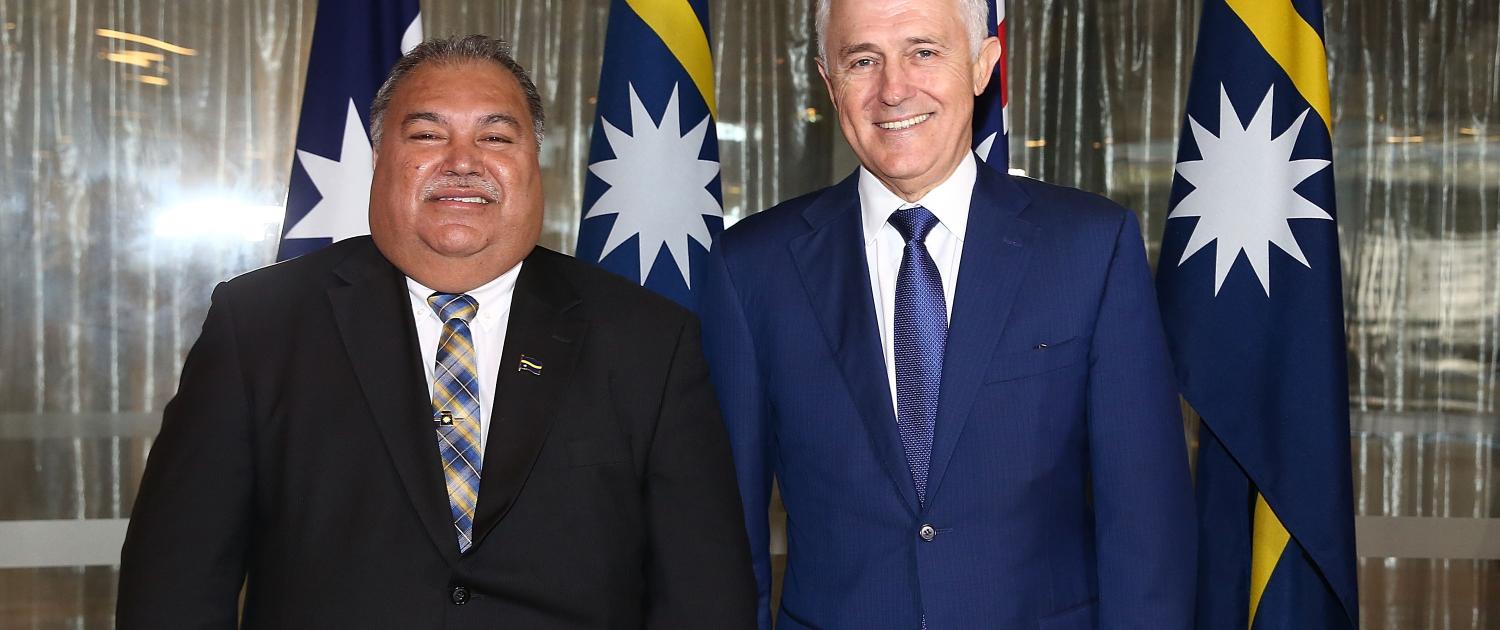In its 2017 Foreign Policy White Paper, the Australian Government declared “shared values” to be at the centre of its foreign policy, and defined such values as “political, economic and religious freedom, liberal democracy, the rule of law, racial and gender equality and mutual respect”.
As the White Paper recognises, in the contested Indo-Pacific order some states are actively asserting authoritarian models in opposition to open, democratic modes of governance. Hence, Australia has presented a “first order” priority to strengthen ties with regional democracies, including the US, Japan, Indonesia, India, and South Korea. The 52-member Commonwealth of Nations, which will meet in April, is also seen as a means to promote “democratic principles (and) the rule of law”.
But this declared ideal is sometimes contradicted by Australia’s practice.
One member of the Commonwealth, the tiny Pacific island state of Nauru, is largely economically dependent upon Australia. Nauru is home to only 10,000 people, and Australia estimates it will provide the island country with $25.4 million in total overseas direct assistance in 2017–18, equal to approximately a quarter of Nauru’s GDP in 2015.
The aid spending, however, does not come close to the money spent on the controversial detention centres that house asylum seekers who sought to arrive in Australia by boat. According to Amnesty International, the Australian Government spent $415 million on its Nauru operations in 2014/15.
The offshore processing centre contributes significantly to the Nauruan economy. The Asian Development Bank shows that in 2013 – the same year the regional processing centre was introduced – Nauru’s GDP grew by 34.2%. In 2014, it grew by 36.5%. Corresponding with the arrangements Australia has struck with the US to resettle refugees, Nauru’s economy is set to contract by 4% in 2018.
Little attention is paid to the ways that Australia’s immigration policies affect Nauruan politics and society, and the mutual dependence that now exists in the relationship between the two countries. One implication of Australia’s offshore detention policies has been a decline in the quality of democracy in Nauru. Nauru’s government has become increasingly authoritarian.
The causal dynamics of Australia’s role in this degradation in democracy is not well understood because the regime in Nauru is increasingly secretive. But we know that minimum standards for democratic governance, such as free press and the rule of law, are being eroded. Huge fees have been imposed foreign journalists wishing to visit Nauru: it costs $8000 to apply for a visa (although Nauru has said the fee will been waived for accredited journalists when the country hosts the Pacific Island Forum in 2018). The Nauruan Government also blocked release of incidents in the regional processing centre, and sought to ban Facebook – a move finally abandoned last month.
In terms of the rule of law, former MPs have been prosecuted for participating in demonstrations. The separation of powers and judicial independence has been compromised as members of judiciary have been sacked and deported by the government. One former MP was granted a political refugee visa by New Zealand after the government confiscated his Nauru passport, rendering him unable to leave the island.
While elections were held in 2016, the extent to which these met the “free and fair” criteria is questionable. A Commonwealth observer mission to Nauru heard reports that the government relied upon vote buying and allocation of campaign funds to influence the elections, a claim that is difficult to verify given the restrictions on foreign media and actors in observing the elections.
The declining quality of democracy and the rule of law damages the political and civil rights of Nauruan citizens. The Law Societies in both New Zealand and Australia have called for action against the Nauruan Government. In 2015 New Zealand suspended more than half of its aid to Nauru’s justice sector, citing concerns over the rule of law. In contrast, Australia has been reticent to condemn or criticise the Nauruan Government publicly.
Ultimately, the Australian Government’s domestic interest in keeping promises about deterring asylum seekers clashes with its foreign policy interest in promoting democracy in the region and globally. It is an example that could undercut Australia’s efforts to define foreign policy by national values.

